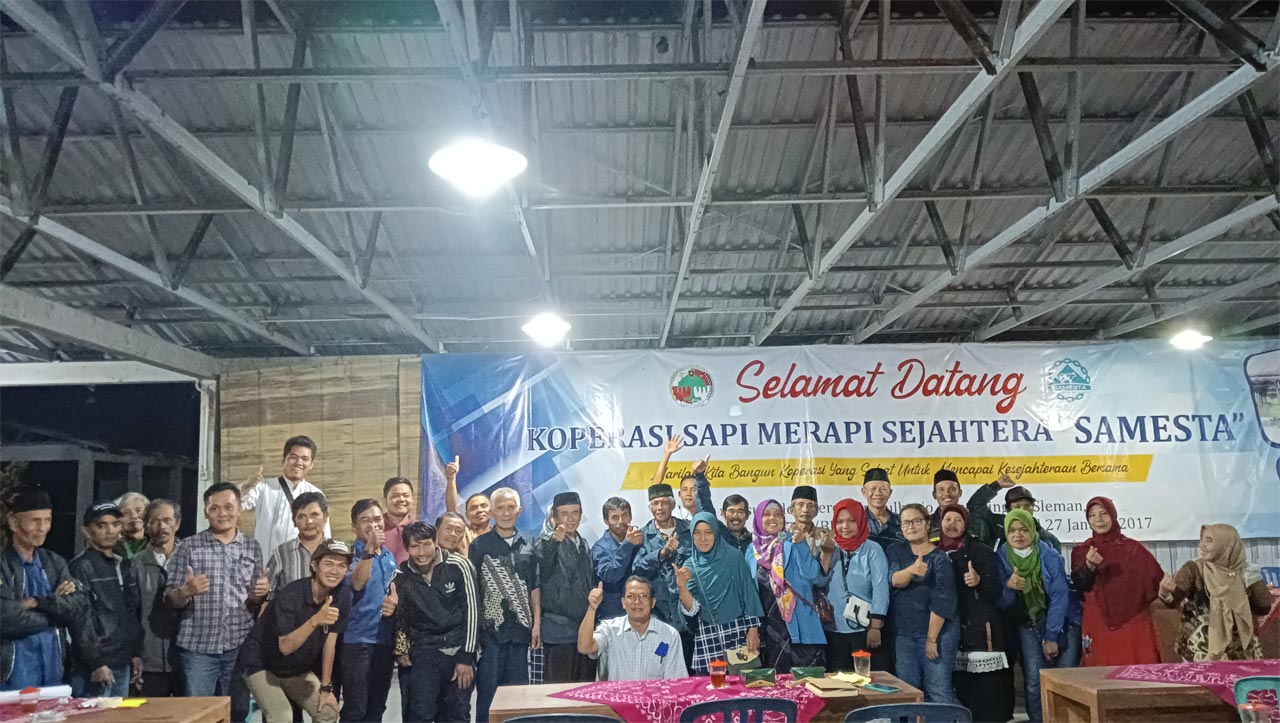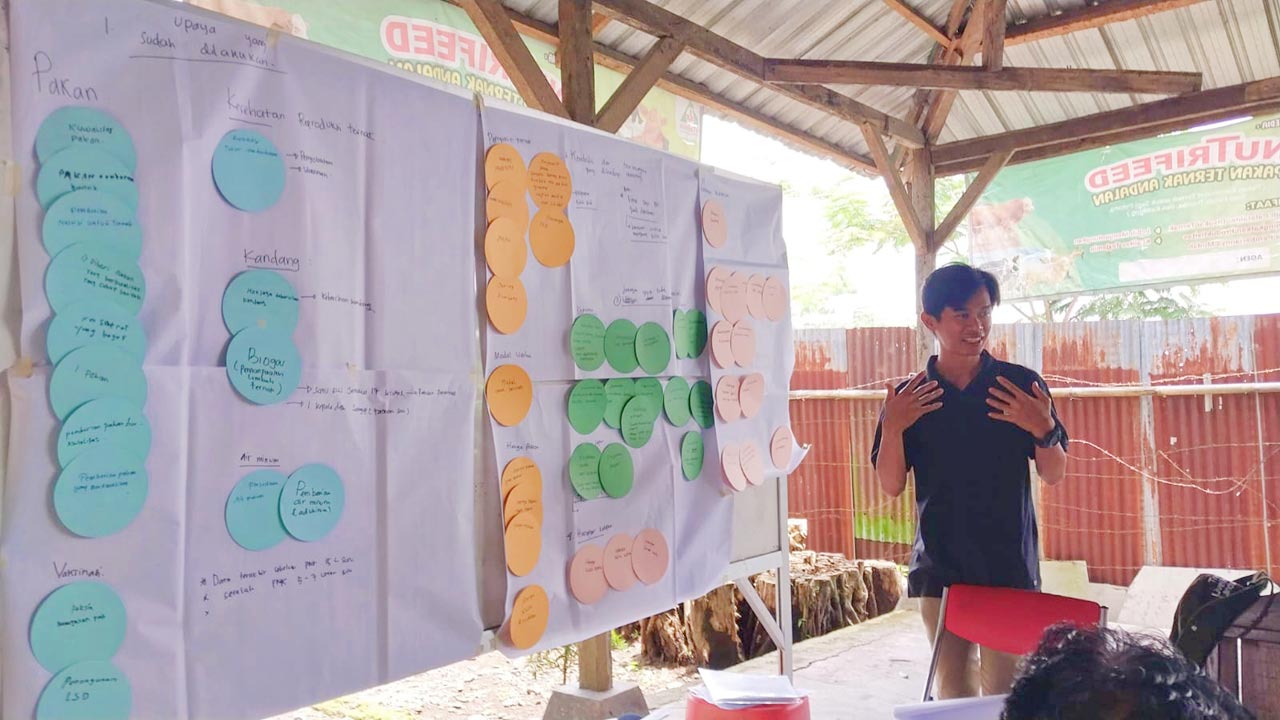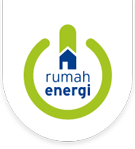Encouraging Good Agricultural Practices Through the Local Milk Sourcing Project

Milk is a food that is an additional need for all groups, from children to the elderly to meet nutritional adequacy. That is, the need for milk is not limited by age and is needed. However, we need to know that in getting milk that is ready for consumption, there is a very influential role for breeders to meet these needs. Breeders are at the forefront and manage cultivation to produce the results for distribution to consumers. Even though they are at the forefront of milk production, it turns out that there are still many obstacles and difficulties experienced by farmers during the cultivation process. Some examples of these constraints are difficulties in obtaining good quality feed, unstable milk prices, and waste from cultivation that has not been managed.
Yayasan Rumah Energi (YRE) through the Local Milk Sourcing project aims to strengthen the resilience of local dairy farmers through Good Farming Practices, improve environmental management through biogas installations, and carry out small-scale pilot initiatives to improve farmers’ work efficiency in milk production and quality. One of the strategic steps taken in the project is the need assessment activity for livestock groups. This activity aims to obtain initial information for the preparation of appropriate program activities, according to the needs of breeders and to gather initial information from breeders. The need assessment was carried out on three livestock groups under the auspices of the PUSPETASARI, UPP Kaliurang, and SAMESTA cooperatives. Each livestock group consists of Mr and Mrs breeders. This activity was carried out in February 2023 in Klaten, Cangkingan Sleman, and Kaliurang.

Some information was found during the need assessment activities, such as the price of milk which was still fluctuating and unstable, the price of concentrate feed that was not in line with the cost of income, and outbreaks of FMD and LSD which still haunted dairy farming. In addition, information was also obtained on the need for module development, easy-to-understand training, regular mentoring, and monitoring of post-training activities. In more detail, the challenges faced by identified breeders are as follows:
- Low milk production occurs when dairy cows experience FMD outbreaks. The decrease after PMK in each breeder averages 5-7 liters or half of the normal milk production of lactating cows. Under normal conditions, dairy cows can achieve a higher milk production of 15-16 liters/day. However, the reality is now that it is very difficult to return to the best performance of cows to produce high volumes of milk.
- The price of milk is part of the daily challenges in dairy farming. The cheap price of milk is not enough to meet the basic needs of farmers for the economic needs of the family. This causes farmers to borrow money from cooperatives or sell cows for the needs of school children and other urgent needs.
- Expensive concentrate feed prices are a material burden, especially business capital for livestock farming. Farmers buy concentrate feed through the cooperative and some buy outside of the cooperative.
- Mastitis and FMD that attack during the cultivation process cause a decrease in the performance of the milk produced. Moreover, LSD (lumpy skin disease) appears as a disease that attacks cow skin. Thus, causing an increase in operational costs for treatment and causing additional capital outlay.
- Low pregnancy rates are a serious problem. Some found information that there were cows that had undergone Artificial Insemination (AI) 3-4 times but failed to become pregnant.
- Farmers are still constrained in increasing their livestock capacity and have not yet implemented Good Farming Practices in animal husbandry. Especially in the utilization of livestock waste that has not been maximized. Based on the data, only about 5-10% of farmers have biogas.
With the Local Milk Sourcing project which is accompanied by training, mentoring, and approaches to farmers, it is hoped that it can help farmers to develop a more productive dairy business, and the quality of the milk produced can encourage better milk prices. This project is also expected to help farmers manage their dairy farming business by implementing good farming practices so that cultivation is cleaner from production to waste management. In addition, the existence of a program can help increase livestock capacity and improve the economic welfare of breeders.
Written by: Muhammad Ilham
Edited by: Fauzan Ramadhan

